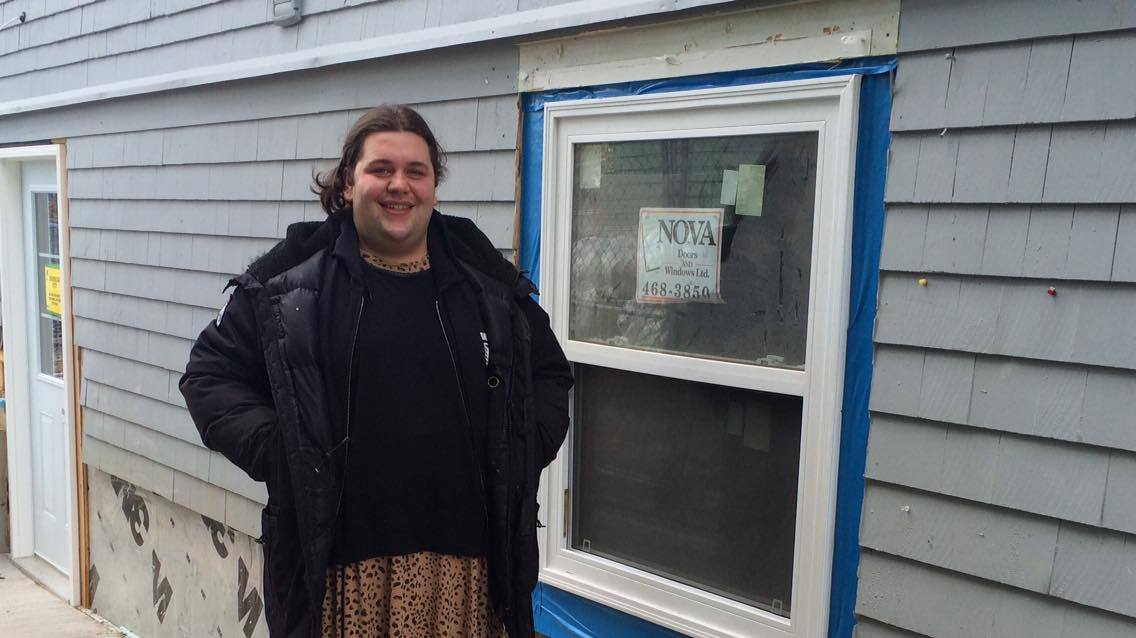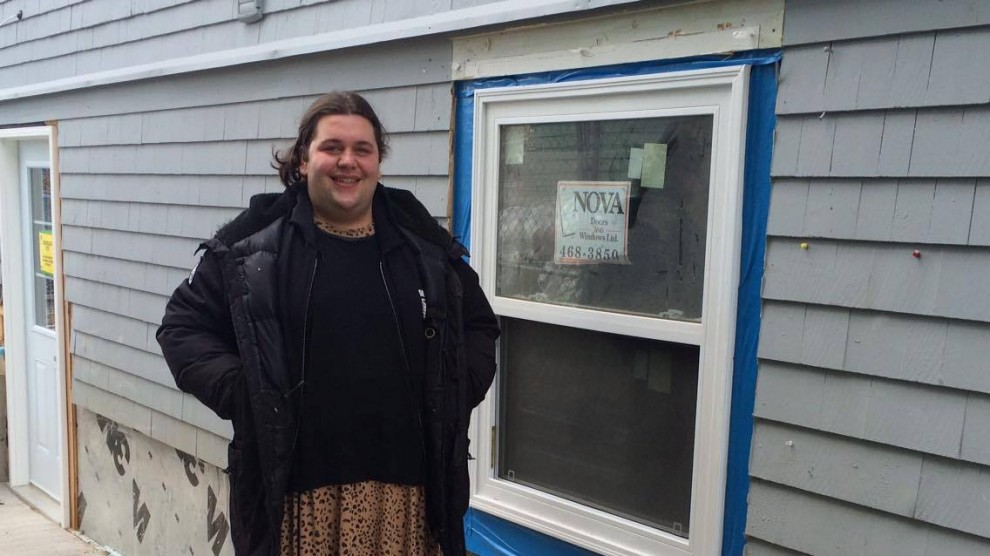Pride
Rhiannon Makohoniuk shares her gender journey
Queer, trans and feminist activist Rhiannon Makohoniuk to talk at TEDxDalhousieU

caption
Rhiannon Makohoniuk stands in front of the old entrance of South House, which is currently undergoing renovations.
caption
Rhiannon Makohoniuk stands in front of the old entrance of South House, which is currently undergoing renovations.For Rhiannon Makohoniuk, the possibilities of gender is something to celebrate.
“I don’t want to talk about my transness as what I dislike or hate about my body,” she says. “I want to talk about celebrating my place in the world as someone who defies gendered norms.”
Makohoniuk is speaking at the upcoming TEDxDalhousieU talk on March 13 about her experiences as a trans woman. She hopes her talk will inspire people to think about the power of language and challenge stereotypes about the transgender community.
Makohoniuk nominated herself for the talk.
“I have the philosophy that if you don’t put yourself out there, who will?” she says.
Nicole Cowper, speaker executive for TEDxDalhousieU, says more than 80 people were nominated to speak at the event. Only eight were selected.
“The biggest thing that stuck out to us about Rhiannon was her positive spirit,” says Cowper. “She wants to celebrate how strong she is and the beauty of all people, which is what TEDx is all about.”
Makohoniuk was 16 when she came out as a queer man and lived “semi-comfortably” before identifying as non-binary at 21. Over the past eight months, the now 24-year-old began using she/her pronouns. It was just this January that she began to introduce herself with the name Rhiannon.
“Two months ago, I would’ve said many people in my life would be OK with who I am,” says Makohoniuk. “But there’s always that apprehension – ‘What if people take this the wrong way?’”
The people in her life didn’t take it the wrong way. And so far, she says, that’s been the best part about her gender journey.
Helping others
Makohoniuk is committed to helping others. She first got involved with DalOUT, South House and Rad Pride five years ago. After receiving her BA in psychology and gender studies, she’s now in her final semester of completing a bachelor of social work at Dalhousie University.
She says having the opportunity to create spaces in the city for queer and transgender people to celebrate themselves is the most rewarding part about the work she does.
She says some examples of how people can challenge gender stereotypes every day are asking people for their pronouns and redefining gender stereotypes by not deciding who can wear what clothing, colours or makeup.
Some of these stereotypes can cause serious harm to trans men and women. According to Trans Student Educational Resources, 41 per cent of transgender persons have attempted to take their own lives.
For anyone struggling with gender identity or transitioning, Makohoniuk encourages people to be themselves.
“Do things at your own pace and don’t let other people’s conceptions of gender constrict you in any way,” says Makohoniuk. “Be however authentic you’re comfortable being.”

